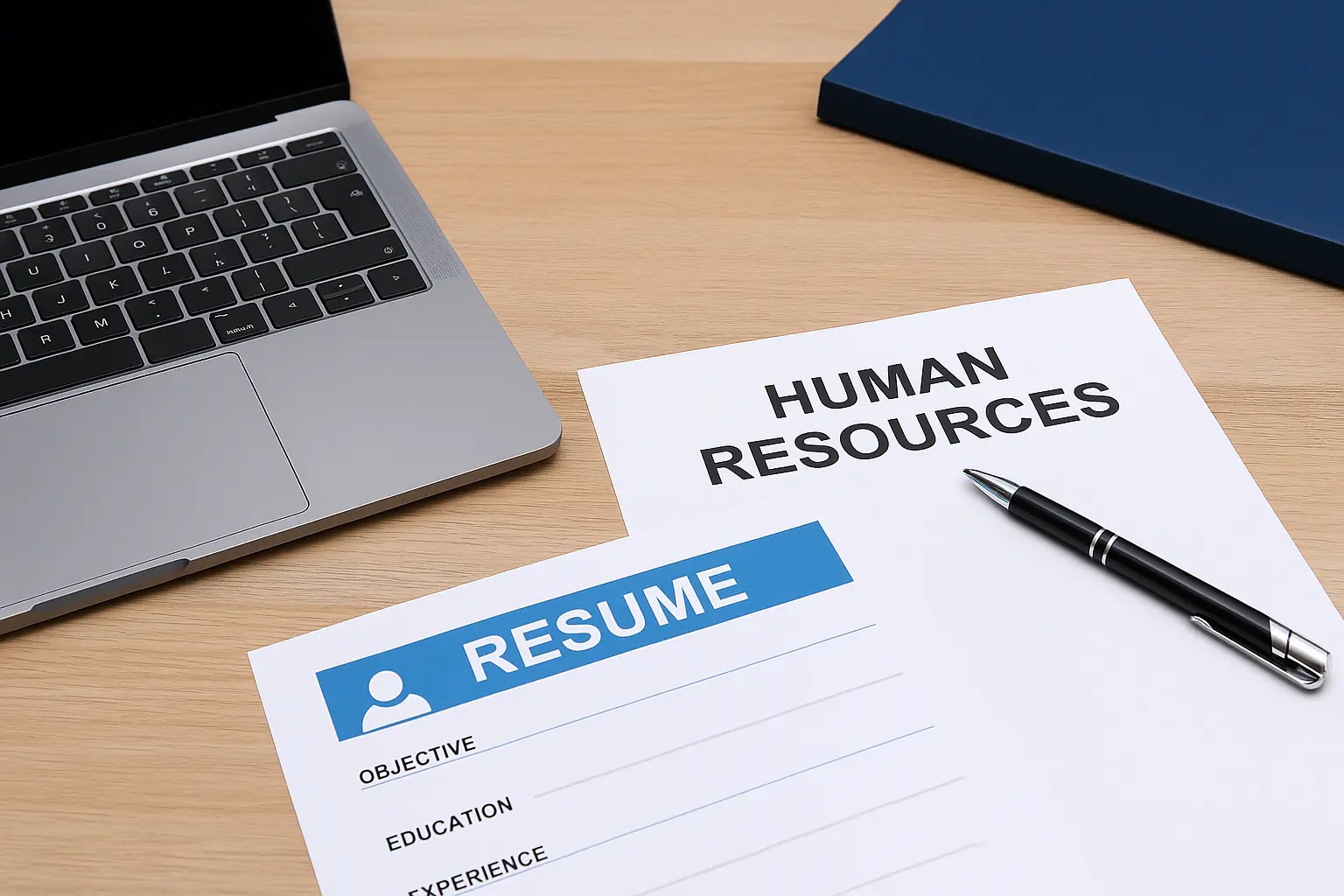Breaking into the Human Resources (HR) field can feel intimidating if you don’t already have direct industry experience. Yet, in 2025, the opportunities for newcomers are stronger than ever. The rise of digital HR tools, diverse specialisms, and accessible training programs means that determined professionals from other sectors—hospitality, retail, customer service, or administration—can make the leap successfully.
If you’re wondering how to get into HR without experience, this guide will walk you through practical strategies, skills you can highlight, and steps to fast-track your career.
Understanding Why You Want to Enter HR
Clarify Your Motivation
Before you begin tailoring CVs or sending applications, take a step back and ask: Why HR? Too often, candidates rely on vague answers like “I enjoy working with people.” While positive, this alone won’t convince hiring managers.
Instead, reflect on whether you are motivated by problem-solving, organizational design, employee development, or policy management. HR is broad, and knowing your “why” helps define which path best fits your strengths.
Exploring Specialisms in HR
The HR field includes diverse functions:
- HR generalist roles
- Learning and development
- Employee relations
- Payroll and benefits
- Organizational development
Each pathway requires different skills, so conducting research ensures your applications are both targeted and genuine. For example, if you thrive on coaching and communication, learning and development may be your entry point.
For a broad overview, the Chartered Institute of Personnel and Development (CIPD) provides resources to explore HR roles (see CIPD).
Transferable Skills: Your Bridge into HR
Recognizing Relevant Skills
Even if you’ve never worked in HR, chances are you already have transferable skills that align perfectly with HR functions.
Hospitality and retail workers, for example, manage conflict resolution daily, communicate with diverse audiences, and handle complex schedules—skills directly applicable to employee relations or HR administration.
Communicating Skills on Your CV
The key is learning to translate your past work into HR language. Instead of writing “handled customer complaints,” you could write: “Resolved interpersonal conflicts by applying mediation and communication strategies, resulting in improved customer satisfaction scores.”
In job interviews, confidently articulate how your attention to detail, teamwork, and leadership experiences equip you to succeed in HR.
For more tips, explore our guide on Top Soft Skills Companies Want in 2025.
The Role of Networking in Landing Your First HR Job
Building Meaningful Connections
Networking is often the most effective way to get into HR without experience. Many HR jobs aren’t advertised publicly; they’re filled through referrals and professional connections.
Start by building a strong LinkedIn profile highlighting your transferable skills. Connect with HR professionals, comment on discussions, and seek mentorship.
Professional Bodies and Events
Membership in organizations like the CIPD or attending HR events can introduce you to mentors and open hidden opportunities. Networking is more than job-hunting; it’s about learning the realities of HR and discovering where you best fit.
If you’re serious about making HR your long-term career, consider investing time in WhatJobs’ career advice hub on Hiring Manager Expectation 2025, which explores what employers look for in new hires.
The Importance of HR Technology Skills
Excel and HRIS Proficiency
In today’s digital HR landscape, technical skills matter. Excel remains the backbone of HR data analysis. Mastering functions such as pivot tables, VLOOKUP, and data visualization can set you apart from other entry-level candidates.
Additionally, familiarize yourself with HR Information Systems (HRIS), as many HR teams manage payroll, benefits, and employee data through these platforms. Free online courses make it easy to gain these skills without formal training.
According to a study by the Society for Human Resource Management (SHRM), HR professionals with technical proficiency are significantly more likely to advance early in their careers (see SHRM).
Kickstart Your HR Career Today
Search HR jobs on WhatJobs and find entry-level opportunities designed for ambitious professionals breaking into human resources.
Find HR Jobs →Do You Need HR Certifications?
The Value of CIPD Qualifications
Certifications like the CIPD Level 3 Foundation Certificate can enhance credibility, but they are not mandatory. Many professionals break into HR through strong transferable skills, networking, and internships alone.
However, if you are competing in a crowded market or seeking to stand out, pursuing a CIPD qualification or equivalent demonstrates commitment to the profession.
Balancing Experience and Education
The best approach is combining voluntary experience or internships with learning. Employers often prefer candidates who have some real-world exposure over those with only classroom knowledge.
Communication Skills: The Heart of HR
Why Communication Is Essential
Every function of HR—from employee relations to payroll communication—relies on clear, empathetic communication. Alicia emphasizes that communication is the cornerstone of success when trying to enter HR.
This means:
- Writing concise, professional CVs and cover letters
- Preparing scenario-based interview responses
- Demonstrating confident, respectful communication in networking
When you can communicate confidently, you position yourself as a trustworthy candidate—even without formal HR experience.
Explore our detailed post on Jobs of the Future: What AI Can’t Replace (Yet), which highlights why communication remains a timeless, irreplaceable skill.
Volunteering and Internships as a Foot in the Door
Volunteering with local organizations, charities, or small businesses gives you exposure to HR-related work such as recruitment, training coordination, or policy updates. Even unpaid experiences can enrich your CV, demonstrate initiative, and give you examples to reference in interviews.
Pair this with targeted job applications for HR assistant roles, which are often entry-level and designed for candidates transitioning into HR.
Mentorship and Coaching Support
Many aspiring HR professionals feel stuck after months of unanswered applications. This is where mentorship programs—such as Alicia’s “Rising HR”—play a pivotal role. With coaching and personalized feedback, candidates learn to market themselves effectively, gain confidence, and build a realistic career roadmap.
Mentorship accelerates the job search process by addressing individual weaknesses and connecting candidates to wider professional networks.
Conclusion: A Realistic Roadmap into HR
Learning how to get into HR without experience is about leveraging what you already have. Transferable skills, networking, voluntary experience, and communication are powerful tools to build your first opportunity.
While certifications like CIPD can give you an edge, they are not essential. Employers value practical skills, confidence, and initiative. By combining research, technology upskilling, and mentorship, you can navigate the HR job market effectively and achieve your goal of starting a rewarding HR career.
FAQ Section
How can I get into HR without experience in 2025?
You can get into HR without experience by showcasing transferable skills, volunteering for HR-related tasks, networking with professionals, and applying for entry-level HR assistant roles.
Is a CIPD qualification required to get into HR without experience?
No, CIPD qualifications are not mandatory. However, they can boost your credibility and improve your chances, especially when combined with practical experience.
What skills are most important when trying to get into HR without experience?
Communication, attention to detail, teamwork, and proficiency with HR technology (like Excel and HRIS) are among the most valuable skills when breaking into HR without experience.
Can networking help me get into HR without experience?
Yes. Networking is one of the most effective strategies to get into HR without experience. LinkedIn connections, mentorship, and professional events often lead to opportunities not advertised publicly.




